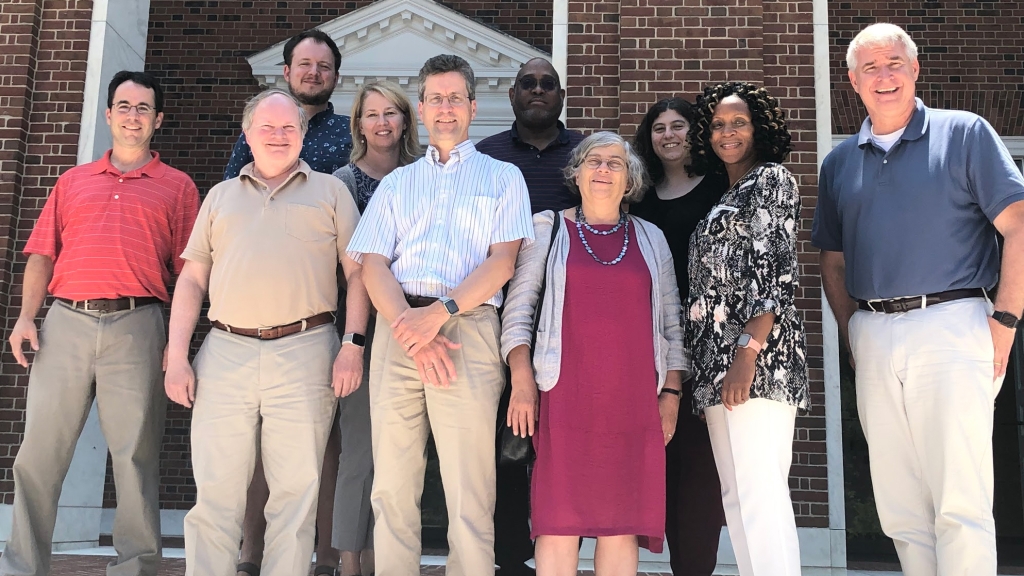Dartmouth has been selected by the National Science Foundation to lead a $10 million national research program aimed at improving security and privacy in homes that use smart devices.
The project—Security and Privacy in the Lifecycle of IoT for Consumer Environments (SPLICE)—will develop tools and approaches that increase user trust in smart products in support of the growing smart-home industry.
Refrigerators, baby monitors and virtual assistants are examples of the increasingly familiar smart products being used in residences. The devices provide benefits to users by sharing information with each other and across the internet, but they come with steep security and privacy challenges.
For the five-year program, Dartmouth will work with research teams from the University of Illinois at Urbana-Champaign, Johns Hopkins University, the University of Maryland, the University of Michigan, Morgan State University, and Tufts University. More than half of the principal investigators leading SPLICE are from groups underrepresented in computing.
"Home is a place where people need to feel safe from prying eyes," says David Kotz, the International Paper Professor of Computer Science and the lead principal investigator for the project. "Through this leadership position, Dartmouth will be at the center of efforts that could impact households around the country—and the world—for generations to come."
As many as half of all residences in the U.S.—including single-family homes, apartments, hotels, and assisted-living facilities—could have at least one smart device within the next five years. Many such products can increase energy efficiency or assist those with disabilities, but faulty configuration or poor design can raise the risk of harm to people and property. Devices with cameras and microphones, for example, could be exploited by individuals who want to break into a home or steal personal information.
"The technology in the average home today is radically different from even a decade ago and is likely to change even more rapidly in the coming years," says Kotz, a faculty member with Dartmouth's Institute for Security, Technology, and Society (ISTS).
The program will study the needs of residents, landlords, guests, and workers who might have different privacy requirements within the same properties. Dartmouth will receive about half of the NSF award to coordinate the project's activities and to conduct its own research.
"For some of us, the 'Internet of Things' is already in our homes. For others, it will be coming soon," says Timothy Pierson, a lecturer in computer science who will co-lead Dartmouth's research team. "It is important to think about the security and privacy implications now, before we all have an array of connected devices monitoring us in our homes."
"I am thrilled to be part of the SPLICE team and working with former colleagues at Dartmouth and others on ensuring privacy and security in smart homes for all households," says Denise Anthony, formerly a professor of sociology and the research director of ISTS at Dartmouth, and now a professor of health management and policy at the University of Michigan.
The project will also develop programs for students, junior researchers, and community members with the aim of encouraging more people from underrepresented groups to pursue careers in computing.
SPLICE comes after Dartmouth's leadership of the NSF-funded Trustworthy Health and Wellness (THaW) program. Also led by Kotz, that program focused on security and privacy for mobile and cloud technology applied to health and wellness.
Kotz says that Dartmouth's established expertise with smart health devices provides a strong foundation for the team's efforts around the smart home.
"The smart-home context is more complicated than many healthcare settings because a single home could host multiple users with differing privacy interests," he says. "On the other hand, these two contexts share similar challenges regarding security in mobile systems and wireless networks."
SPLICE and THaW are funded by NSF's Secure and Trustworthy Cyberspace Frontiers (SaTC Frontiers), a cross-cutting program to address fundamental scientific challenges related to privacy and cybersecurity. Both projects are affiliated with Dartmouth's ISTS.
David Hirsch can be reached at david.s.hirsch@dartmouth.edu
